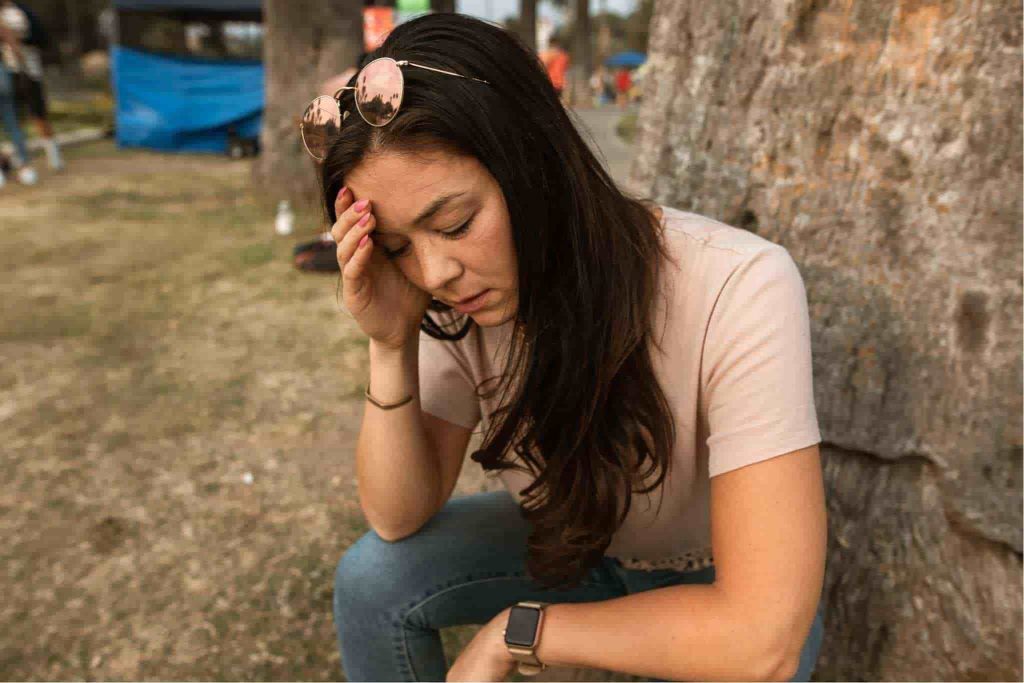OCD And Social Anxiety: Is There A Relationship Between The Two?

Obsessive-compulsive disorder or OCD and social anxiety disorder or SAD are both considered types of anxiety disorders, and it’s common for people to have both co-occur, but is there truly a link between OCD and social anxiety? Or is it just a coincidence?
Obsessive-compulsive disorder is a condition where you struggle with intrusive and persistent thoughts (obsessions) and repetitive behaviors (compulsions). Social anxiety disorder, on the other hand, is a condition where you fear social interactions and also experience panic at the thought of public embarrassment, rejection, or judgment.
While these two disorders are different, when their symptoms overlap each other, that’s when we can refer to it as Social OCD. Social OCD isn’t a clinical term, but it can be effectively used to describe the overlapping of the symptoms of both disorders.
If you live with social OCD, then your obsessions may relate to social interactions and behaviors, or you may also have intrusive thoughts of people rejecting you in social situations, embarrassing you, or humiliating you. When this kind of behavior and thinking persists, then it can impact your mental, emotional, and social health.
Let’s learn more about the relationship between social anxiety and OCD.
Social Anxiety And OCD

Both of these conditions – OCD and social anxiety – are chronic disorders and can have symptoms that can influence your daily life. However, these are two different disorders with different symptoms and diagnostic criteria.
However, someone can have symptoms of both social anxiety and OCD, together. This normally means that they live with two different disorders. Did you know that studies suggest that social anxiety is one of the most common disorders to occur with obsessive-compulsive disorder?
It’s also highly likely for someone living with OCD to experience social obsessions and intrusions. However, it doesn’t mean that they will be diagnosed with social OCD.
To be diagnosed with social OCD, you need to meet the criteria for both disorders as referenced in the DSM-5.
For OCD, you must meet the following criteria;
- You have repetitive and constant obsessions and compulsions
- Your compulsions and obsessions cause you severe distress that can affect your daily life and routine
For Social Anxiety diagnosis, you must meet the following criteria;
- You have a fear of social events where others might judge or criticize you
- You have a persistent fear of being humiliated or embarrassed in public
- You have a constant fear of social situations
- You tend to avoid social situations
- Your symptoms last for at least 6 months or more than that
- Your symptoms impair the way you function at work, school, and in a relationship,
- Your symptoms can’t be explained by other factors or conditions
Is It All?
Unfortunately, for someone living with OCD and social anxiety, this isn’t all. You may also experience obsessions with social factors which can cause signs seen in responsibility OCD or “Social Scrupulosity”.
Responsibility OCD is a condition where you feel extreme anxiety over harming others’ feelings. You may worry obsessively that you will say or do something in a social setting that may remind them of something traumatic or distressing. You may also experience intrusive thoughts about saying what you don’t want to.
Neither OCD nor social anxiety is a disability, even though the symptoms of both can be weakening and distressing. With the right treatment, help, and support, you can learn to live with OCD and social anxiety and even navigate aspects of life such as relationships, jobs, academics, etc.
Can OCD Cause Social Anxiety?

OCD does not always cause social anxiety disorder nor does social anxiety disorder cause OCD. But, one of the two disorders may likely contribute to the occurrence of the other, however, that is also in some cases. Not every time.
In a study, it was observed that social anxiety disorder was found in almost 20% of people living with OCD. And those with OCD and social anxiety were more than likely to experience symptoms of depression and insecure attachment styles.
Can Social OCD Be Treated?
Both disorders – OCD and social anxiety disorder – can be cured with timely interference and treatment. In severe cases, medications such as SSRIs might be prescribed, however, in many cases, cognitive-behavioral therapy or CBT is recommended.
CBT for social anxiety disorder may include approaches like exposure therapy that exposes you to your fears gradually, under the guidance of a professional mental health counselor. While CBT for OCD can involve exposure and response prevention therapy. ERP therapy also exposes you to your fear while encouraging you to not engage in compulsions. With time in the therapy, you’ll learn that you don’t need to act on your compulsions to relieve anxiety.
Final Thoughts
Social anxiety and OCD might be two different disorders with different diagnoses but in many cases, each may overlap the symptoms of the other. In those cases, the condition can be called “Social OCD”.
In social OCD, a person lives with obsessions related to the fear of social interactions but might not meet the diagnostic criteria for social anxiety disorder (SAD). If you suspect you or your loved one of social OCD, then it is recommended you speak to a mental health professional for diagnosis and treatment.
I hope this article helped you learn the relationship and link between OCD and social anxiety. For more, you can write to us at info@calmsage.com or DM us on social media to connect with us.
You can also share your thoughts and views with us in the comments section below.
Take Care!




















